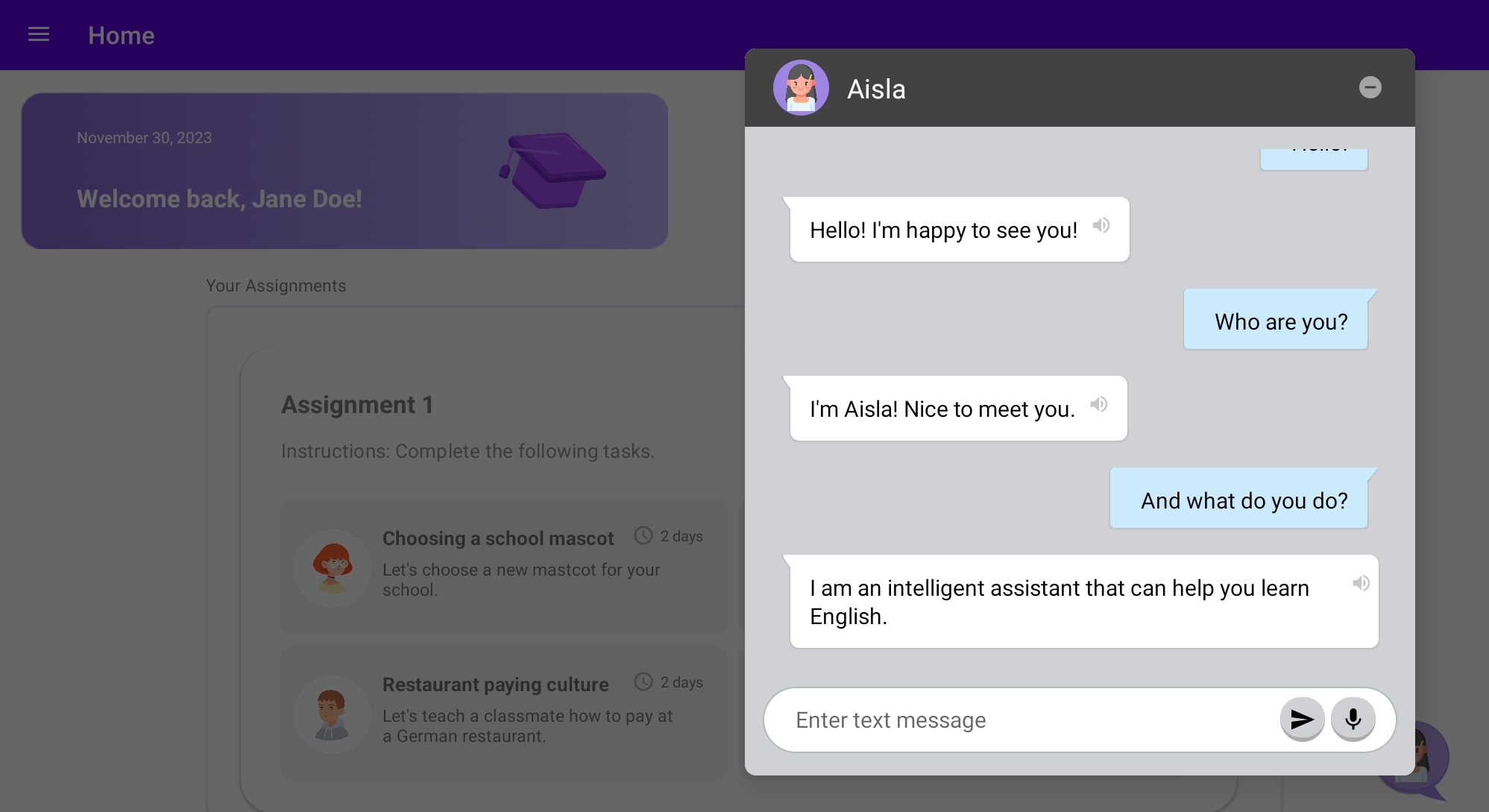
Aisla is a BMBF (German Ministry of Education) funded project aiming at building an intelligent agent for assisting spoken English training. Its design is informed by the latest research on task-based language teaching, AI conversation systems, and natural language processing.
An intelligent language tutor and practice partner.


Aisla's design conforms with the latest findings from Task-Based Language Teaching (TBLT) and Second Language Acquisition (SLA) research, ensuring the effectiveness of the system.

The tasks are integrated with the school curriculum, aligning with current vocabulary and grammar. This helps students reinforce classroom learning and apply new skills in real-world situations.

Students practice real-life tasks (e.g., introducing themselves, ordering food) with dynamic conversational agents, while receiving task demonstrations and key language guidance.

Aisla supports both written and spoken interactions, enhancing language learning by providing a flexible experience for practicing listening, reading, writing, and speaking skills.

While practicing, students are provided with incremental, context-sensitive hints to guide them toward correct language usage. Receiving hints may support learning by encouraging reflection and self-correction.

While competent interlocutors like native speakers offer valuable practice, they aren't always available for every learner. This system provides a cost-effective alternative to meet individual needs.

Principal Investigator
ICALL & AIED Researcher

Development project manager
Senior software developer

PhD Candidate
ICALL Researcher

System developer
NLP & ICALL Researcher

Student assistant
System developer

Student assistant
Content developer

Student assistant
System developer

Advisor
NLP & SLA expert

Expert Consultant
SLA & TBLT Expert
http://kibi.group
Hector-Institut für Empirische Bildungsforschung
Eberhard Karls Universität Tübingen
Walter-Simon-Strasse 12 · 72072 Tübingen,Germany